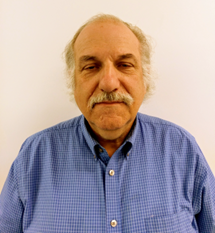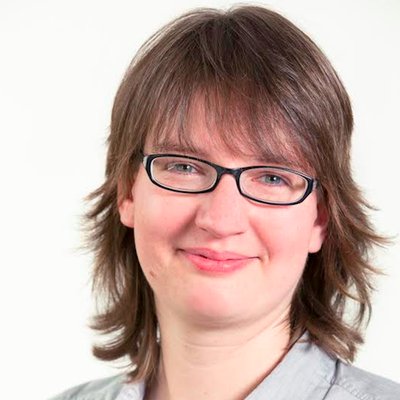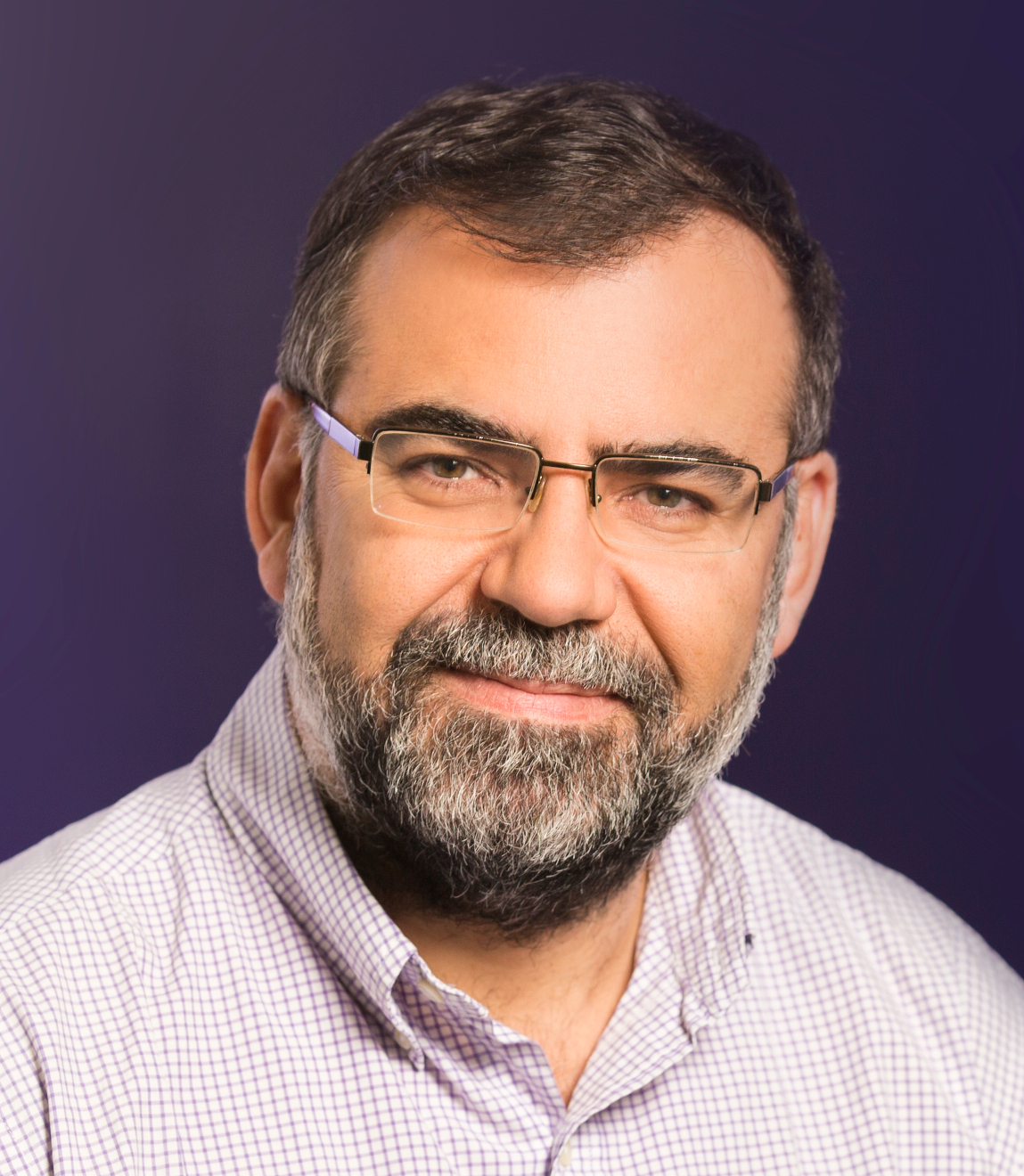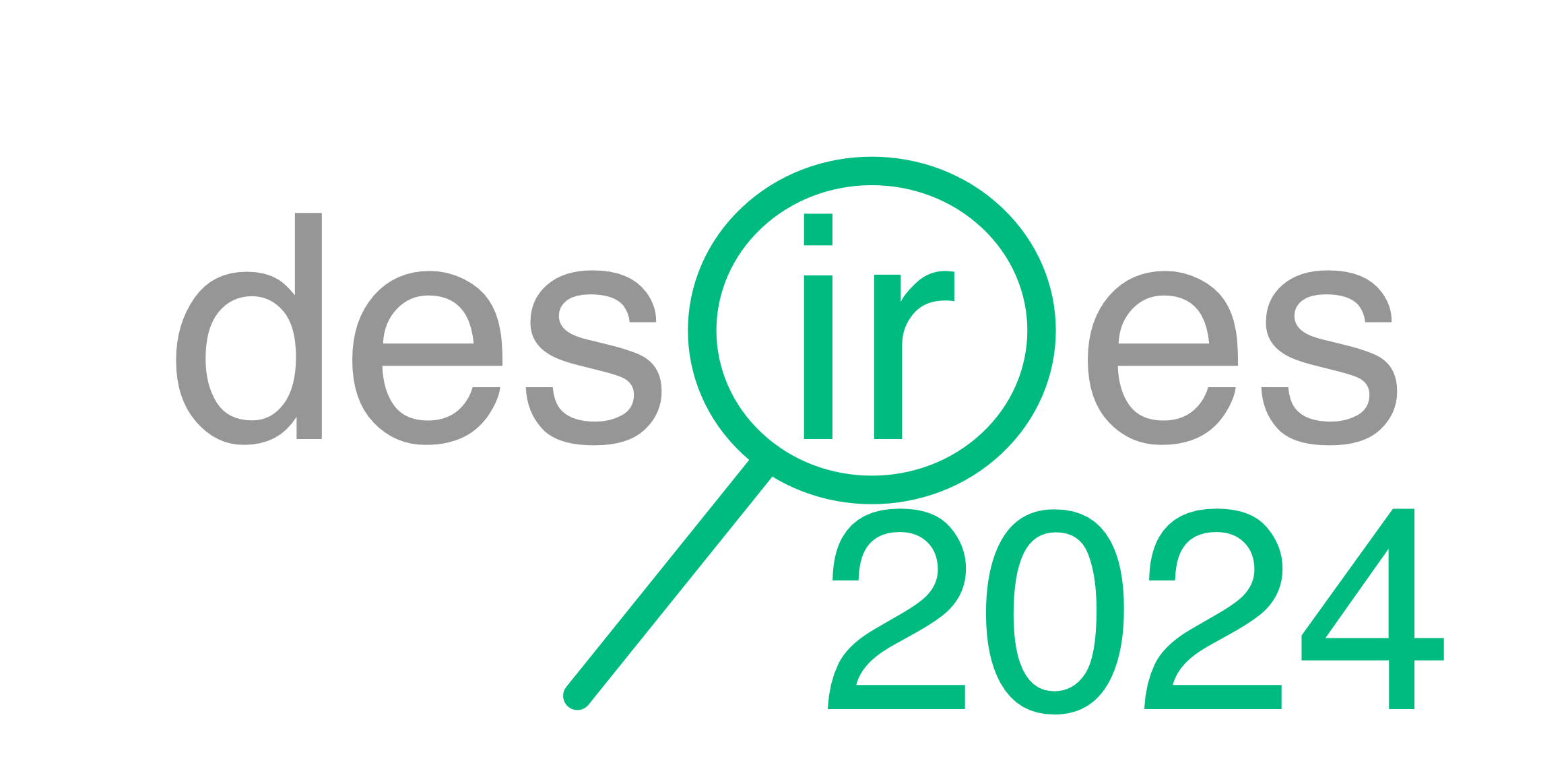AN IN-PRESENCE EVENT
DESIRES needs to be done in presence to favor participation and discussion!
DESIRES speakers need to present in person and not online.
Anyhow, if there are particular health conditions or VISA issues, As a last resort the speakers can present online.
Key facts
DESIRES is a biennial systems-oriented conference emphasizing the innovative technological aspects of search and retrieval systems.
DESIRES gathers researchers and practitioners from both academia and industry to discuss the latest innovative and visionary ideas in the field.
DESIRES mainly encourages papers about innovative and risky information access and retrieval system ideas, systems-building experience and insight, resourceful experimental studies, provocative position statements, and new application domains.
DESIRES is a single-track conference.
DESIRES complies with the following code of conduct: Python Community Code of Conduct.
Call for Papers
DESIRES is a single-track conference. To encourage authors to submit only their best work, each person can be an author or co-author of only a single paper or prototype. That is, authors can submit only 1 (one) paper. Plus, a paper author may also submit 1 (one) abstract or an open problem in IR.
DESIRES welcomes contributions focusing on implementation details, successful or failed reproducibility attempts, technological breakthroughs and new uses of old ideas.
Running prototypes and war stories are more than welcome.
Industrial and "real-world" experiences play a central role in DESIRES. For instance, papers discussing how well-established research ideas are implemented and used in commercial products are encouraged.
DESIRES invites four kinds of contributions (note that the layout is single column):
- Full papers (up to 10 pages + references). Papers usually lack rigorous frameworks, simulations of performance, or prototype implementations but present a radical departure from conventional approaches that enables new applications. Accepted full papers will typically be presented in 20 minutes with (at least) 10 minutes for questions and discussion. There will be a discussant for each paper that will read the paper in advance and prepare questions (plus questions from the audience). DESIRES values discussion, so we'll avoid to say "you may want to discuss this off-line".
- Prototypes (up to 6 pages + references). The prototype descriptions generally are a detailed report on successes and mistakes. Accepted prototype papers will typically be presented in 10 minutes with 5 minutes for questions and discussion.
- Abstracts (2 pages + references). Ideas that are too half-baked for a paper or demo proposal are good candidates for an abstract. Any author of a paper or prototype demo may additionally submit one abstract. Abstracts are expected to have a single author. Accepted abstracts are presented in a gong-show style.
- Open Problems in IR (up to 3 pages + references). We are looking for abstract-like papers framing an important but unsolved problem in IR. "Open-Problems" papers are expected to have a single author. Any author of a paper, prototype demo, or abstract may additionally submit one "Open-Problems" paper.
Submission Guidelines
Papers must be submitted electronically via the conference submission system.
When you submit a paper, please specify the type of the submission by adding the type between square brackets after the title.
For example, if the title of you paper is
The perfect ranking function [Full paper] The perfect ranking function [Prototype] The perfect ranking function [Abstract] The perfect ranking function [Open-problem]
The review process is single-blinded. No anonymization is required both for full or short contributions.
All papers must be original and not simultaneously submitted to another journal or conference.
The accepted papers might be extended in length before publication to add reproducibility details, minor experiments or other additional material useful to improve the paper and its comprehension.
Submissions of papers must be in English, in PDF format, and in the CEUR-ART single column style.Templates:
Proceedings
The accepted (and presented) papers will be published as CEUR-WS proceedings freely available on-line: http://ceur-ws.org/ (Indexed by DBLP and Scopus). Modified or incremental versions of the papers included in the DESIRES proceedings can be submitted to other venues.The scope of DESIRES is discussing ideas, not tying them.
Important Dates
Notifications will be on 16 July 2024.
Conference dates: 2-4 September 2024.
Keynotes

Kenneth Church
Professor, Khoury College of Computer Sciences at Northeastern University, USA
Kenneth Church (Northeastern University, USA)
Title: Better Together: Text + Context
We will demo an academic search engine for papers and authors in Semantic Scholar (S2). The UX makes it easy to compare different embeddings and recommendation APIs. Users can choose which embedding/API to use for generating search results. To encourage users to compare and contrast embeddings (vectors for many/most documents in S2), the search result page (SRP) reports similarity scores for each result and four embeddings: Specter, ProNE-s, SciNCL and a GNN (graph neural network). Most of these embeddings are based on deep neural networks (BERT encodings of abstracts, with fine-tuning on nearby documents in the citation graph), but ProNE-s is based on linear algebra (spectral clustering of citation graph). Some embeddings/APIs are better at capturing text (titles and abstract) and others are better at capturing links in the citation graph. Methods that depend too much on English text do not work well on common corner cases such as missing abstracts, duplicate documents and languages other than English. ProNE-s is less exposed to these corner cases because it is based on the citation graph. Experiments will show that ProNE-s finds papers with more citations, and the S2 API finds more recent papers. It is unlikely that one method is better than the others for all use cases. We believe it is useful to encourage users to explore a number of promising options, and vote with their clicks.

Claudia Hauff
Spotify
Claudia Hauff (Spotify)
Title: On the Challenges of Podcast and Audiobook Search at Spotify
Online music streaming is enjoying ever-growing popularity over the past decades, enabled by the abundance of music content in digital format and online streaming services. In recent years, podcasts (a talk-focused media format) have witnessed a rapid growth among listeners. Podcasts come in many forms and sizes. They range from 20-minute daily meditation sessions, weekly recaps of global news, to interviews with celebrities, and hosts bantering with each other for hours. More and more streaming services are now expanding their catalogs to support both music and podcasts as well as audiobooks on the same platform. This setup requires an effective aggregated search system to assemble information from heterogeneous information sources and content types into one result interface in order to support diverse information needs. In this talk I will go over some of the challenges we encountered.

Ricardo Baeza-Yates
Director of Research, Institute for Experiential AI @ Northeastern University, USA
Ricardo Baeza-Yates (Institute for Experiential AI, USA)
Title: The Limitations of Machine Learning & Us
Lightining Talk followed by a panel!
Machine learning (ML), particularly deep learning, is being used everywhere. However, not always is used well, ethically and scientifically. In this talk we first do a deep dive in the limitations of supervised ML and data, its key component. We cover small data, datification, bias, predictive optimization issues, evaluating success instead of harm, and pseudoscience, among other problems. The second part is about our own limitations using ML, including different types of human incompetence: cognitive biases, unethical applications, no administrative competence, copyright violations, misinformation, and the impact on mental health. In the final part we discuss regulation on the use of AI and responsible AI principles, that can mitigate the problems outlined above.
Venue
Bressanone, Italy
Casa della Gioventù, Via Rio Bianco, 12, 39042 Bressanone BZ
Bressanone-Brixen, Italy
Experience the enchanting beauty of Brixen in the summer months. Nestled at the confluence of the Eisack and Rienz rivers, Brixen is a picturesque destination with a population of nearly twenty-three thousand. Enjoy the warmth of the sun as you explore the historic streets, indulge in local cuisine, and take in the breathtaking scenery of the surrounding mountains.
For outdoor enthusiasts, the Plose mountain massif offers a haven of adventure. Hike the trails, revel in the vibrant flora, and breathe in the crisp mountain air. Brixen is not just a city; it's a gateway to nature's wonders, making it an ideal summer retreat.
We considered Brixen for DESIRES 2024 because of its unique blend of modern amenities and natural beauty. Envision engaging in conversations about the newest trends in IR amid the captivating scenery of the Sarntal Alps and the serene atmosphere of the Eisack district.
Accommodation
Bressanone offers a wide range of accommodations ranging from cheap to expensive solutions. We will provide some alternative in the next months.
Organization
General Chairs
- Omar Alonso (Amazon, USA)
- Tracy Holloway King (Adobe, USA)
- Gianmaria Silvello (University of Padua, Italy)
- Tracy Holloway King (Adobe, USA)
Program Committee
- Ting Bai (Beijing University of Posts and Telecommunications)
- Krisztian Balog (University of Stavanger)
- Alessandro Benedetti (Sease)
- Steven Bourke (Whatnot)
- Berkant Barla Cambazoglu (NTENT)
- Jingyuan Chen (Zhejiang University)
- Humberto Corona (Spotify)
- Altigran Soares da Silva (Universidade Federal do Amazonas)
- Quanyu Dai (Huawei Noah's Ark Lab)
- Arjen de Vries (Radboud University Nijmegen)
- Giorgio Maria Di Nunzio (University of Padua)
- Kim Falk (Binary Vikings)
- Nicola Ferro (University of Padova)
- Evgeniy Gabrilovich (Meta Reality Labs)
- Chongming Gao (University of Science and Technology of China)
- Johannes Goller (Zalando SE)
- Chun Guo (SiriusXM)
- Shiyi Han (Apple)
- Allan Hanbury (TU Wien)
- Panos Ipeirotis (New York University)
- Ajinkya Kale (Adobe)
- Surya Kallumadi (Lowe's)
- Jaap Kamps (University of Amsterdam)
- Jussi Karlgren (Numolo)
- Praveen Kolli (Carnegie Mellon University)
- Jayant Kumar (Adobe Inc.)
- Matthew Lease (University of Texas Austin)
- Jochen Leidner (Refinitiv Labs / University of Sheffield)
- Donald Metzler (Google)
- Zhaoyan Ming (Zhejiang University)
- Yashar Moshfeghi (Strathclyde University)
- Rajyashree Mukherjee (Walmart)
- Anand Muralidhar (Amazon)
- Hossein A. Rahmani (University College London)
- jean david Ruvini (WiseSkus)
- Vamsi Salaka (Amazon)
- Procheta Sen (Dublin City University)
- Ian Soboroff (NIST)
- Damiano Spina (RMIT University)
- Jacopo Tagliabue (Bauplan)
- Paul Thomas (Microsoft)
- Andrew Trotman (University of Otago)
- Vishwa Vinay (Adobe Research)
- xi wang (University Colledge London)
- Musen Wen Walmart (Global Tech)
- Le Wu Hefei (University of Technology)
- Tao Ye (Amazon)
- Wenting Ye (Amazon)
- Emine Yilmaz (University College London)
- Xiangkai Zeng (NA)
- Yibing Zhan (JD Explore Academy)
Inclusion Chair
- TBA
Co-organized and supported by










